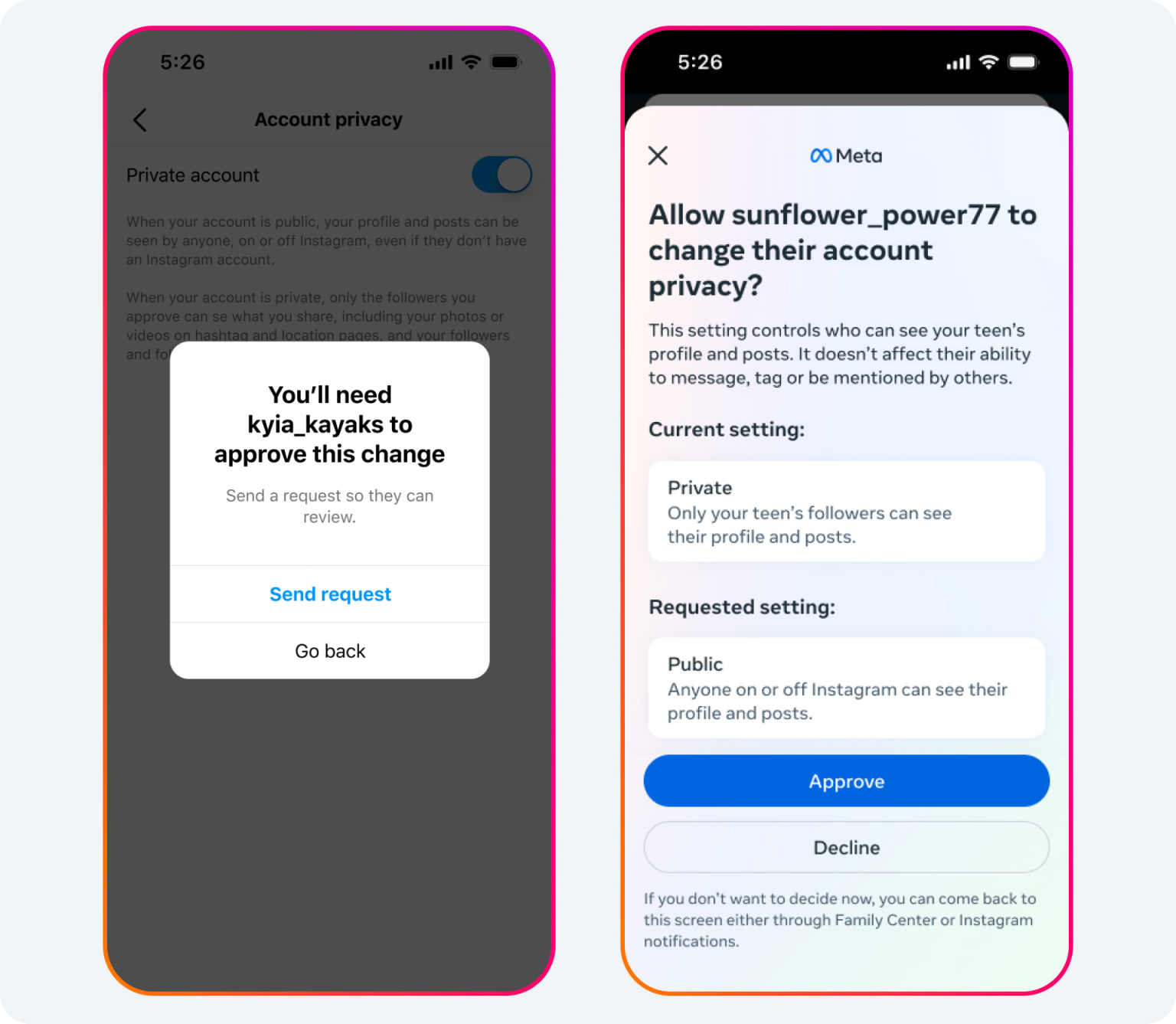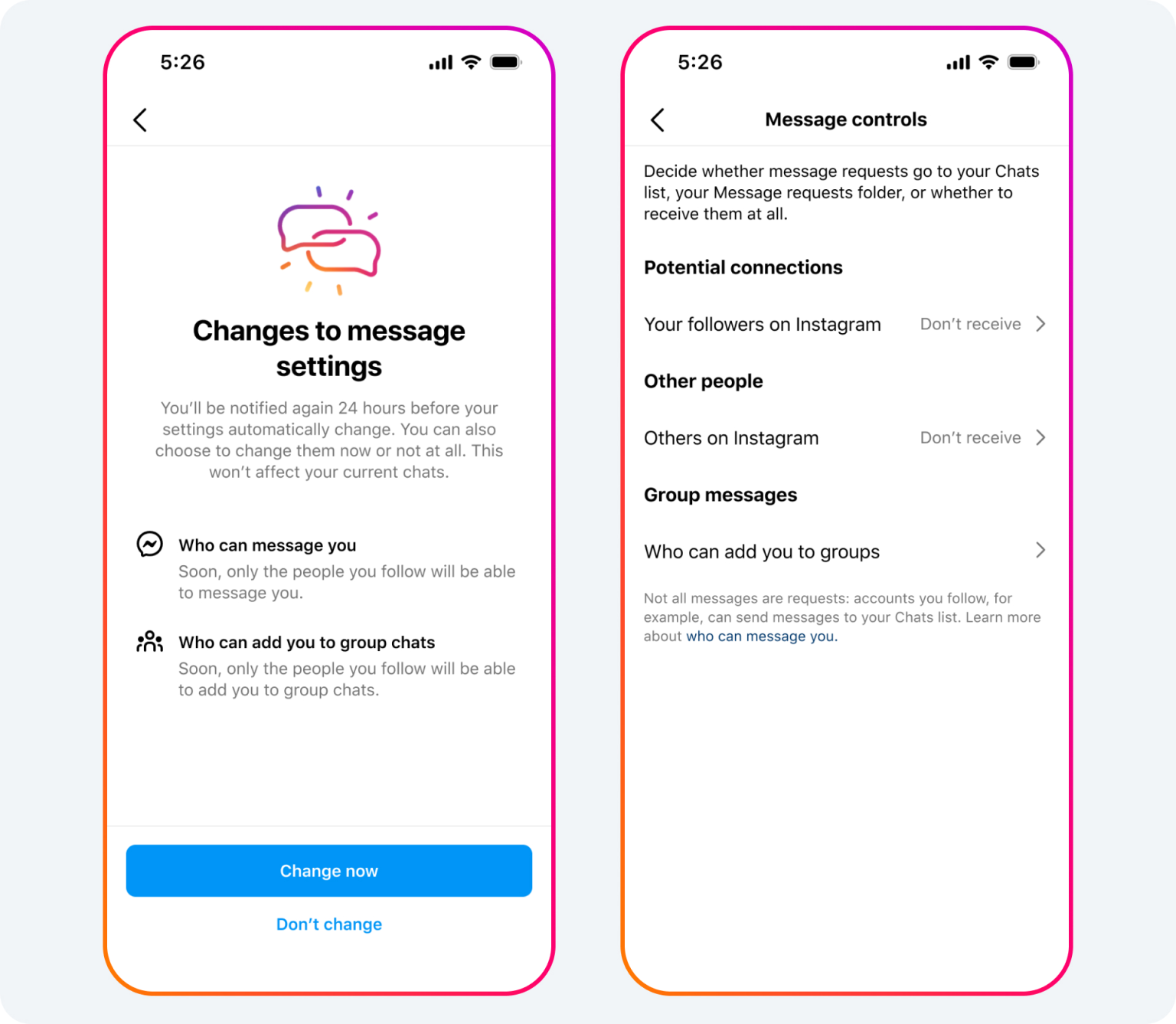Highlights
- Meta introduces stricter messaging settings for teens on Instagram and Facebook.
- Teens restricted from receiving DMs from unknown contacts by default.
- Upcoming feature to filter inappropriate content in messages for teens.
- Enhanced parental supervision tools for better control over teens’ online settings.
In an effort to enhance online safety for teenagers, Meta has introduced a series of new measures on Instagram and Facebook, focusing on stricter private messaging settings and enhanced parental supervision tools.
“Under this new default setting, teens can only be messaged or added to group chats by people they already follow or are connected to, helping teens and their parents feel even more confident that they won’t hear from people they don’t know in their DMs,” Meta added.
New Messaging Restrictions for Enhanced Teen Safety

Meta has announced significant updates to private messaging settings on Instagram to safeguard teens from unwanted contact.
The new default setting restricts teens from receiving direct messages (DMs) from anyone they don’t follow or aren’t connected to on the platform, including other teens.
This change, Meta says, aims to provide a safer online environment by ensuring that teens only interact with known contacts in their DMs.
For teenagers under the age of 16 (or under 18 in certain countries), this setting will be the norm. Existing users will be notified of this change through a notification in their Instagram feed.
Similarly, on Facebook Messenger, teens will only be able to receive messages from Facebook friends or people they’re connected to through phone contacts.
Upcoming Feature to Filter Inappropriate Content

Meta is also working on a new feature to protect teens from receiving or sending unwanted and potentially inappropriate images in messages.
This feature, which will be compatible with encrypted chats, is set to launch later in the year, further enhancing the safety protocols for teen users.
Parental Supervision Tools Strengthened

Since the launch of parental supervision on Instagram in March 2022, Meta has been expanding its features to allow parents to play a more active role in their teens’ online experiences.
Larry Magid, CEO of ConnectSafely, said “Empowering parents to approve or deny requests to change their teen’s default safety and privacy settings gives parents the tools they need to help protect their teens, while at the same time respecting their teens’ privacy and ability to communicate with their friends and family.”
The latest update requires parents to approve any changes their teens (under 16) wish to make to their default safety and privacy settings.
This includes changes like switching from a private to a public account, modifying sensitive content controls, or altering DM settings to allow messages from unknown contacts.
Facilitating Offline Conversations

Meta emphasizes that these supervision tools are designed to spur offline discussions between parents and teens about their online presence, ensuring that families can collectively decide on the best practices for their online experiences.
FAQs
What are the new messaging settings introduced by Meta for teens?
Meta has implemented stricter messaging settings on Instagram and Facebook, preventing teens from receiving direct messages from people they don’t follow or aren’t connected to.
How will the new Meta settings affect teens using Instagram and Facebook?
The new settings will make it harder for teens to receive unwanted messages, enhancing their safety and privacy on these social platforms.
Is there an upcoming feature for teen safety on Meta’s platforms?
Yes, Meta is planning to launch a new feature that filters out inappropriate images in messages, aiming to protect teens from potentially harmful content.
How do the enhanced parental supervision tools work?
Parents will now have to approve any changes their teens make to default safety and privacy settings, ensuring a higher level of control and safety.
Also Read: Meta Announces New Privacy Controls for EU Users: Unlinking Facebook, Instagram, and WhatsApp
Also Read: Sheryl Sandberg Announces Exit from Meta Board, Ending a Defining Era
Also Read: Meta Ending Cross-App Messaging Between Instagram and Facebook Messenger This Month
